“A number of years ago I became severely addicted to a cough medication which contains a huge amount of alcohol and a huge amount of pseudoephedrine.”
“The medical system has been very good with me about my addiction. I have made a recovery, and now work here at a residential addiction recovery program.”
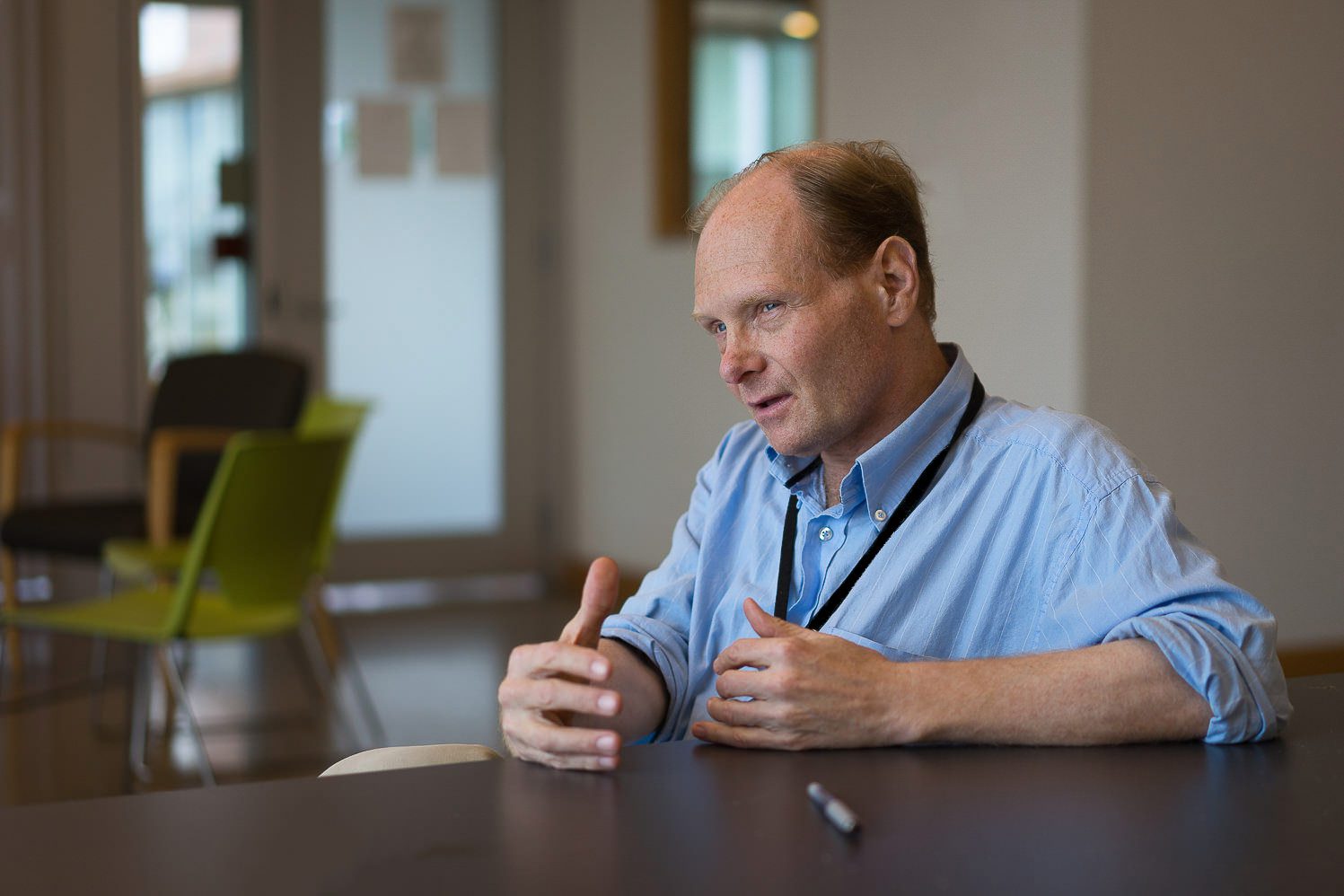
“I remember one time being with a person when I was in my depression. I was just in tears, and they were telling me to snap out of it. ‘Come on Peter, snap out of it!'”
And I looked at them and said, ‘Do you really think I want to be like this right now? Do you think I want to be sobbing in your presence?’
“I didn’t want to be like that but I couldn’t help it. I went through the whole bit of closing windows, pulling the phone out of the wall, going into the dark basement with CNN on all day. Yeah, I went through that. I am fortunate that I can identify what my warning signs are going to be, and my employers are very enlightened in that regard. If somebody feels that they’re going through a period of depression, the management will work very hard with that person to say, ‘Okay, just take some time.’ I wish more people, more workplaces were like that.”
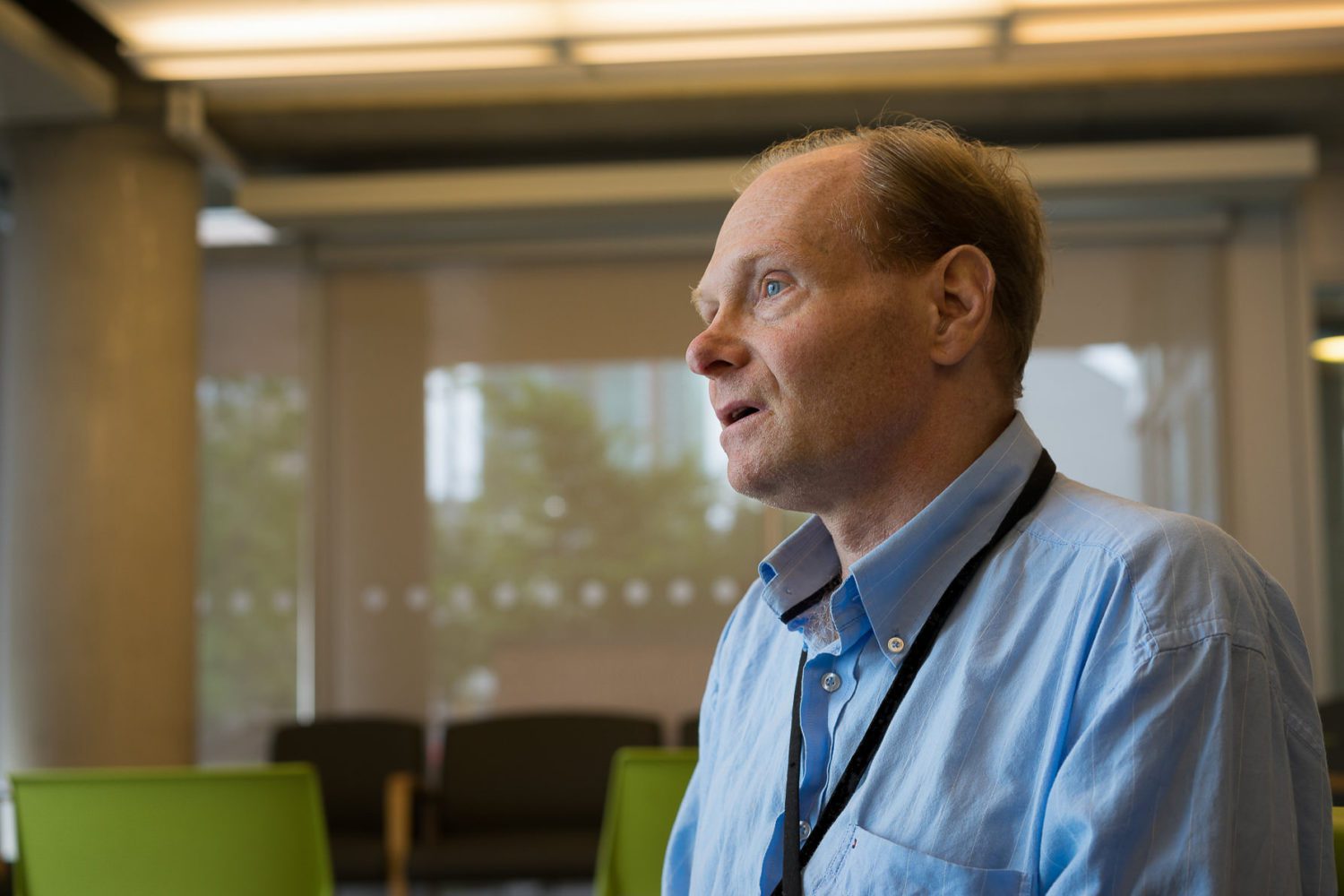
“What allowed you to overcome your addiction?”
“Regular attendance at AA meetings and my faith in God. And, ultimately, going to the addiction recovery programme. When I came here, I really gave my head a shake and bought into what was being done here. I had a fantastic group to work with. I found that the group therapy was very effective because I could trust the guys in the group. Another institution introduced me to AA, which was great, but one of the flaws in that program was that it was co-ed in nature. From my personal standpoint, I don’t think that’s productive at all. I think there’s treatment for men and there’s treatment for women, and I think they’ve got to be separate. There are very different issues, and I think that’s one of the reasons why I bonded to what they were doing here; the discipline and the structure of the program.”
“I grew up in the Anglican Church. I was baptized and confirmed. But, I would say I left active participation in the church when I was in my early 20s. I came back to the church when I came here. I never lost my faith in God, but to practice my religion with other people was very important to my recovery. I have a great sense of peace and serenity in my life now because of it.”
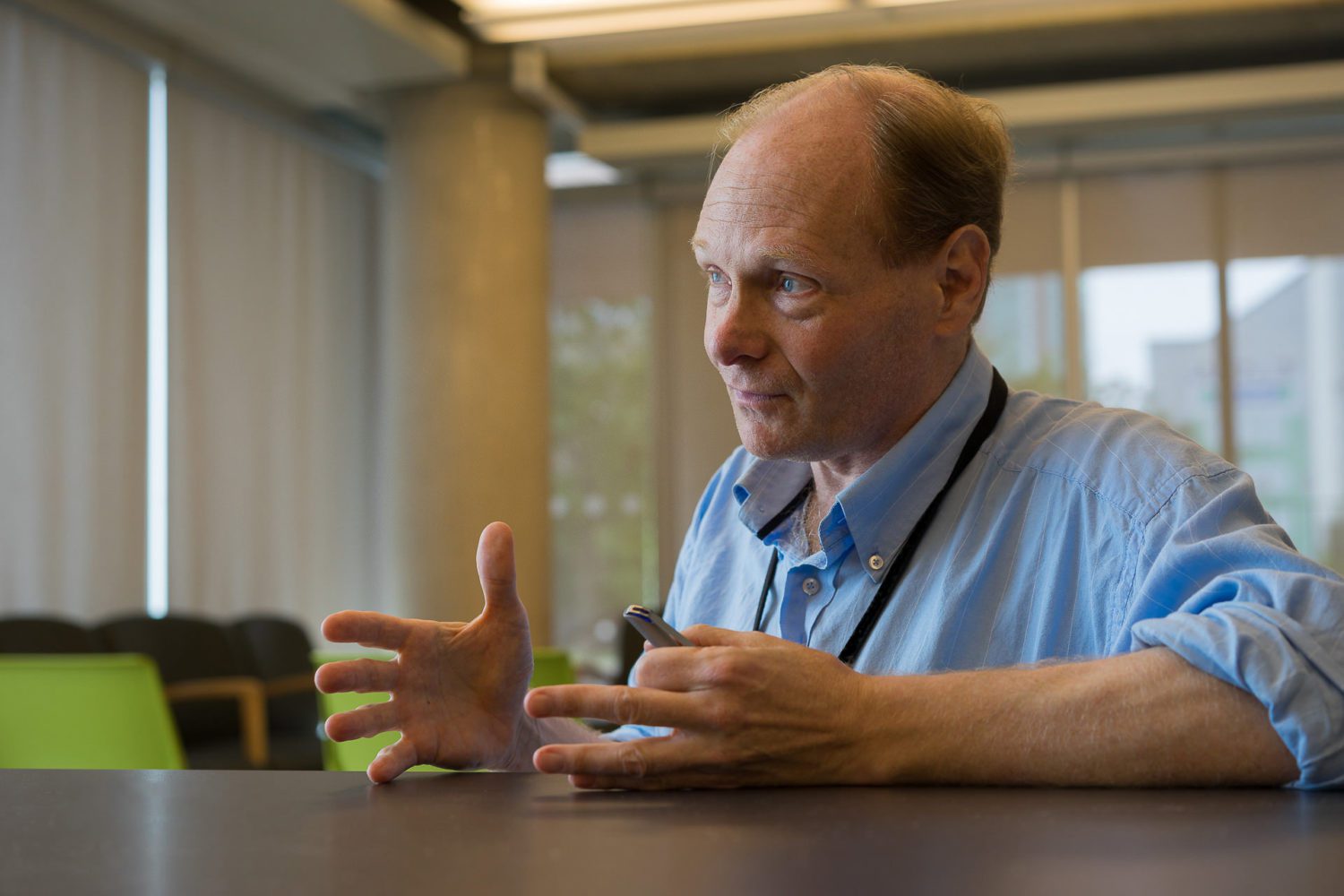
“I tell some of the guys that if they go to the emergency department with a broken arm and the doctor casts it, when they come back everybody will want to sign the cast. But if we have a bout of depression, or we start to slip back into our addiction, there is no sense of sympathy from society.”
I think that’s because the public won’t believe what it can’t see.
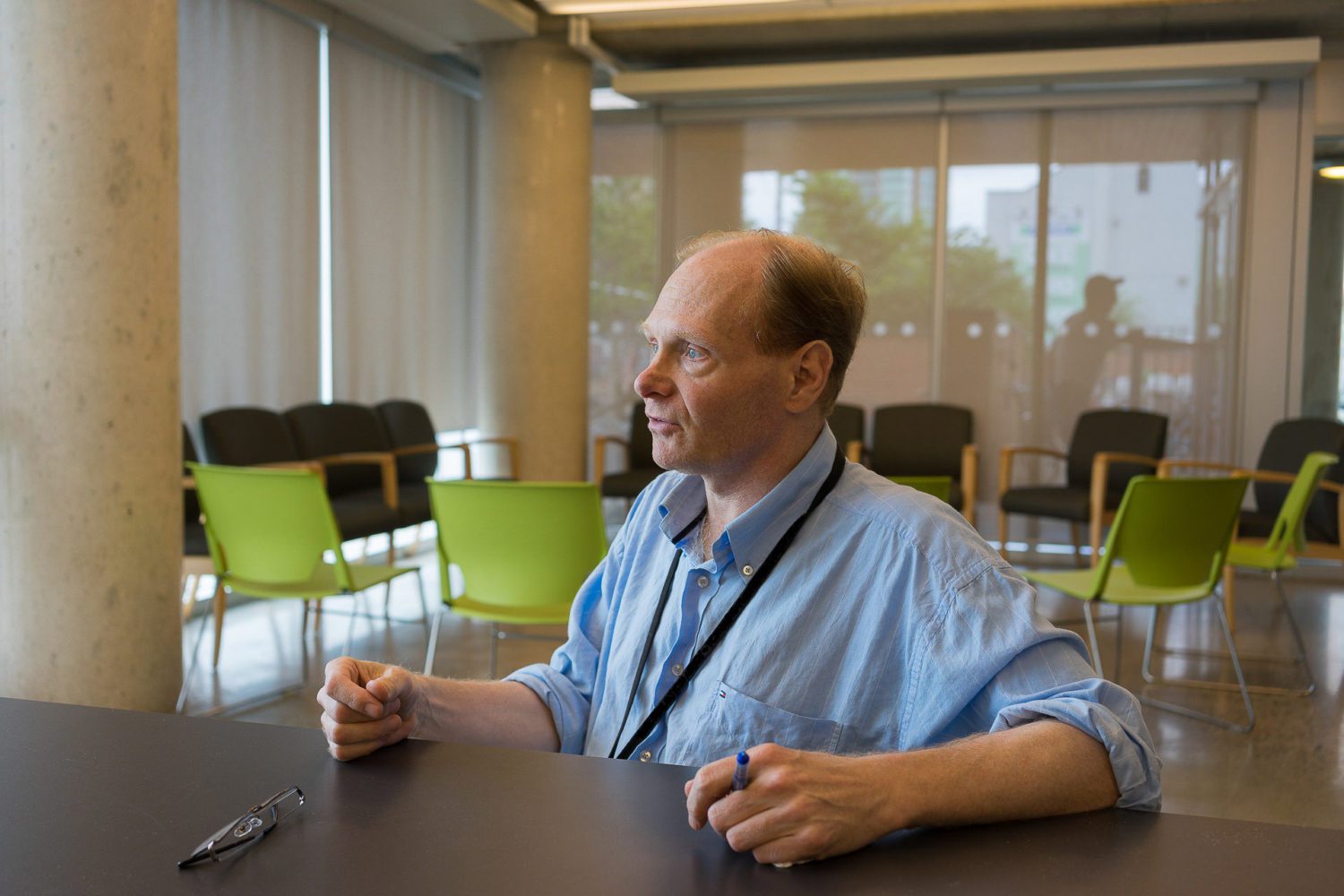
“What do you think about how the media covers people with addictions?”
I would say that the coverage is uneven. When I talk about addiction I also talk about mental illness, because I am of the opinion that if someone has an addiction issue there’s also a mental illness issue. There’s a reason for the addiction, there’s a reason why people are taking the substance. They’re trying to numb a memory of some sort. I think one of the most enlightened writers is Lori Goldstein of the Toronto Sun who has written extensively about mental health and addiction, and talked about his own experiences. I enjoy reading what he has to write. I think the media is trying to understand, but we get pieces every now and then that are really misinformed. I would prefer the language to change. I would prefer them to put the people first and the addiction second. ‘This person has an addiction’ as opposed to ‘This person is an addict.'”
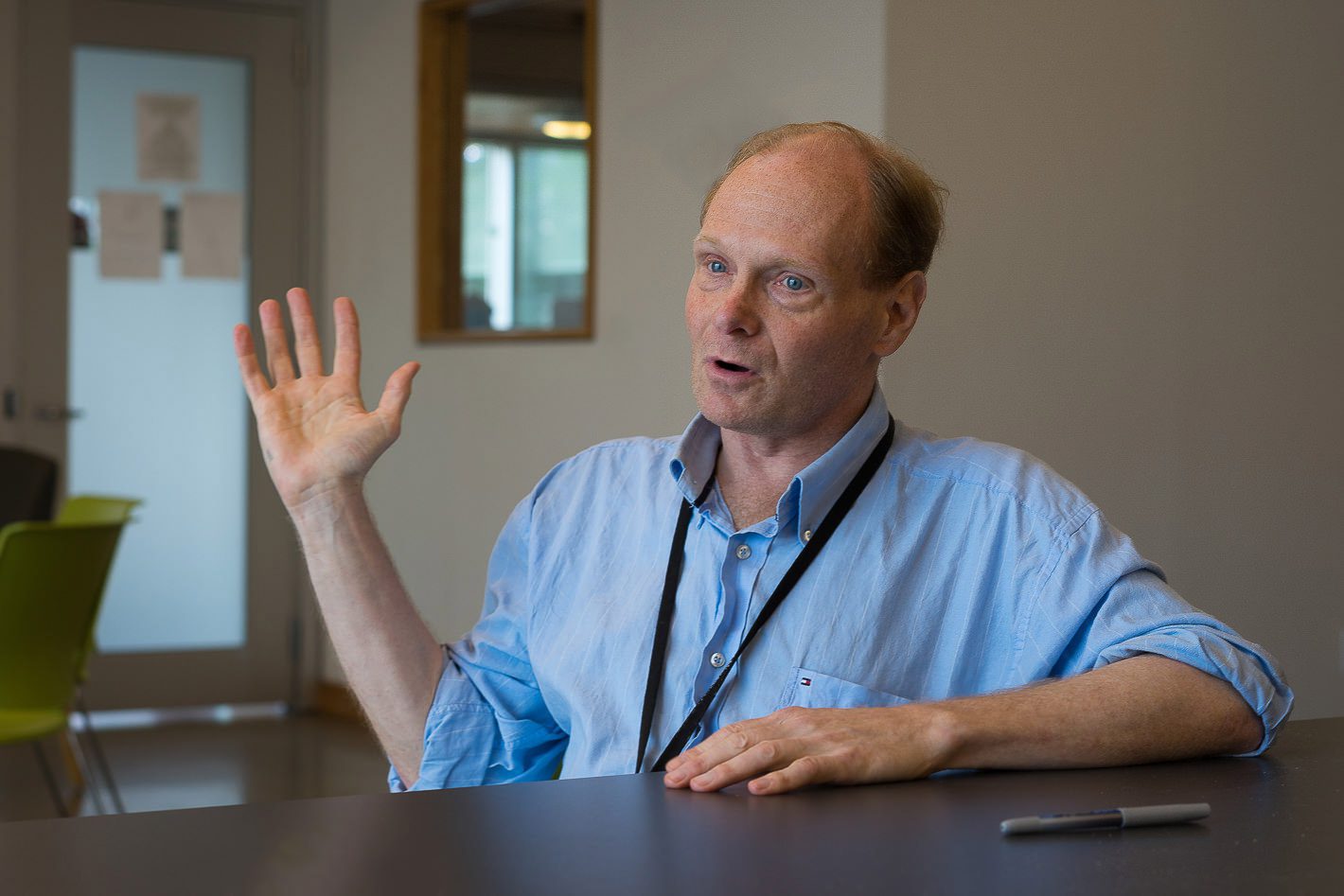
“Do you ever feel unsafe working here?”
“No. Not within this building. The only time that I do get concerned is if we are dealing with somebody who walks into the building off the street and they’re angry, very angry. Sometimes that does happen. I have been spat at, they’ve banged the glass, some guy tried to hit me with his cane. But, it… it just goes with the territory.”
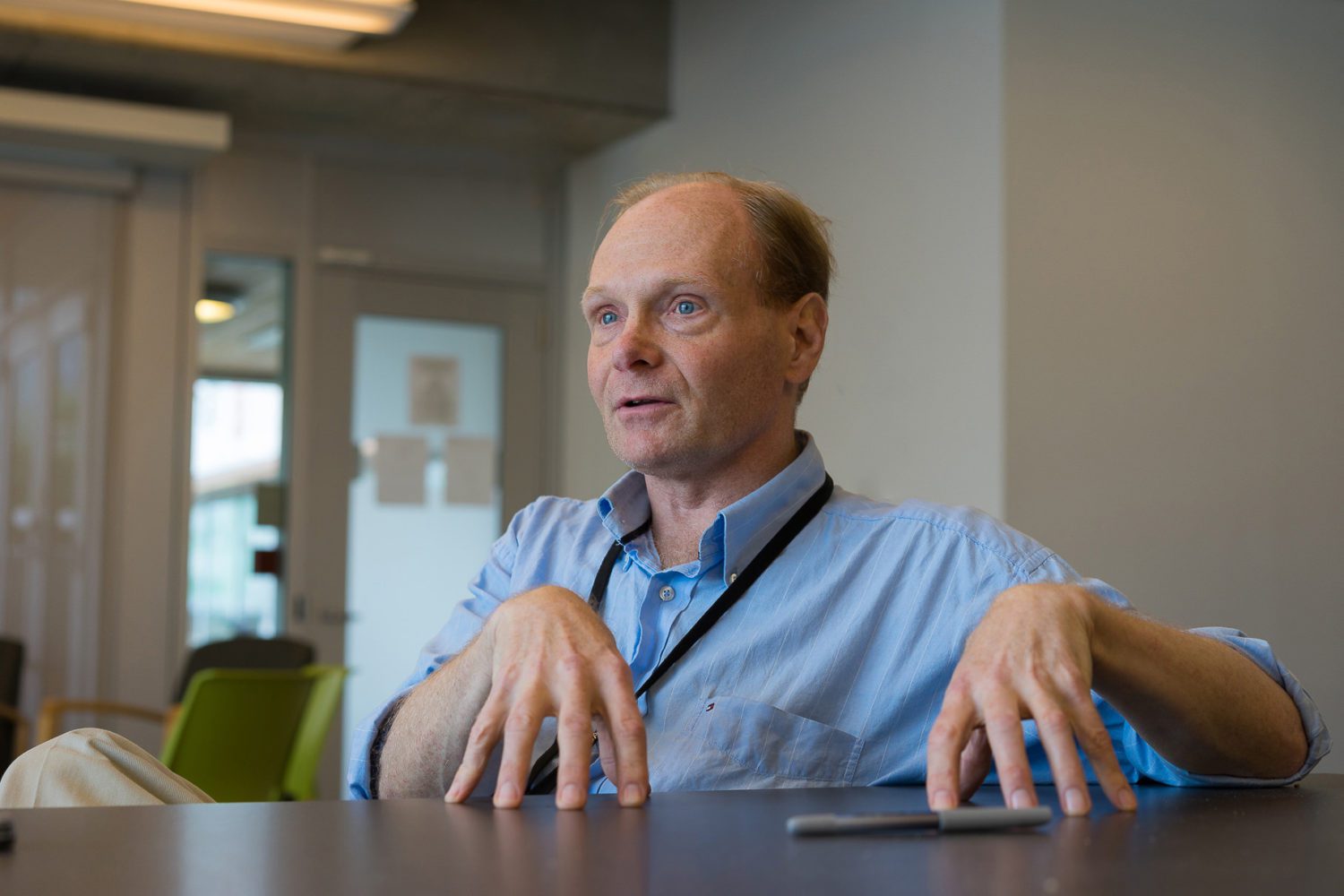
“The workers, the counsellors in this place, they suffer trauma too.”
“I know that there is a certain burn out rate amongst counsellors. We are working to become more trauma aware. Not only trauma aware of the clients, but self-aware of our own trauma and how to deal with it. We have a great program director who is very conscious of this issue.”
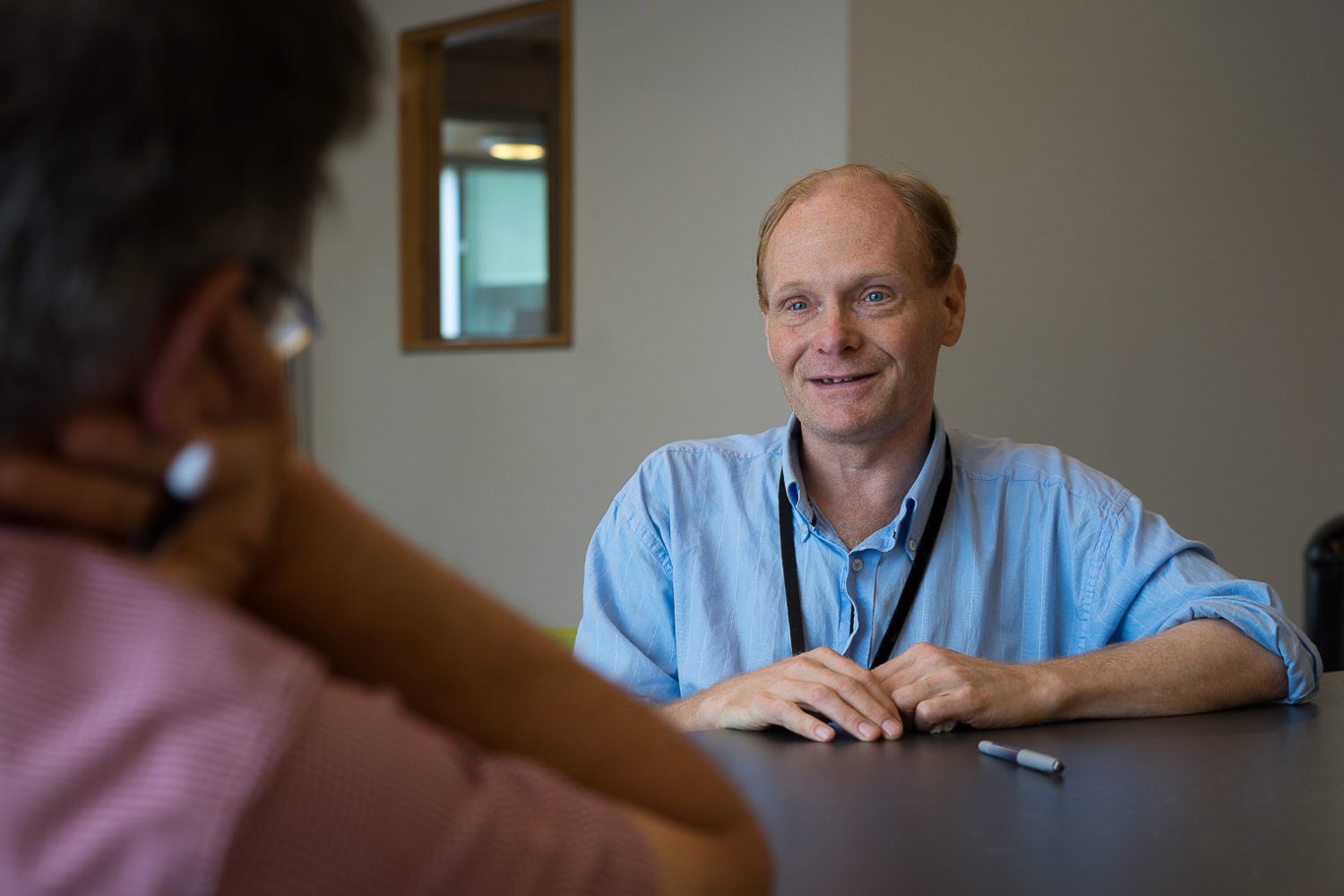
“I am a teacher by training and I still have my license to teach. I have elected to run an education program here that works with guys who are interested in obtaining their Grade 12 equivalency and then moving into College. It’s been a fairly successful program. When guys in early recovery grab onto the idea that they want education as part of their recovery, that’s wonderful. When somebody elects to include education as part of their recovery, I’m honoured. I really am. We’ve had guys go into U of T, other guys who are at George Brown who have graduated in business.”
“One young woman came into my class and on the first day said, ‘I don’t deserve to be here. I was bad in school, I was bad to the teachers, I was bad to my friends.'”
“Well, she went to George Brown, and now she is studying at U of T. So, that’s the type of success story that we have. Here’s this woman who comes in, and she’s got purple hair and a nose ring, and society considers her…. you know, society has dictated what her role will be already. And she opted to say, ‘No, society is not going to dictate what I am going to be.'”
“Does she still have her purple hair and her nose ring?”
“Yes she does.”
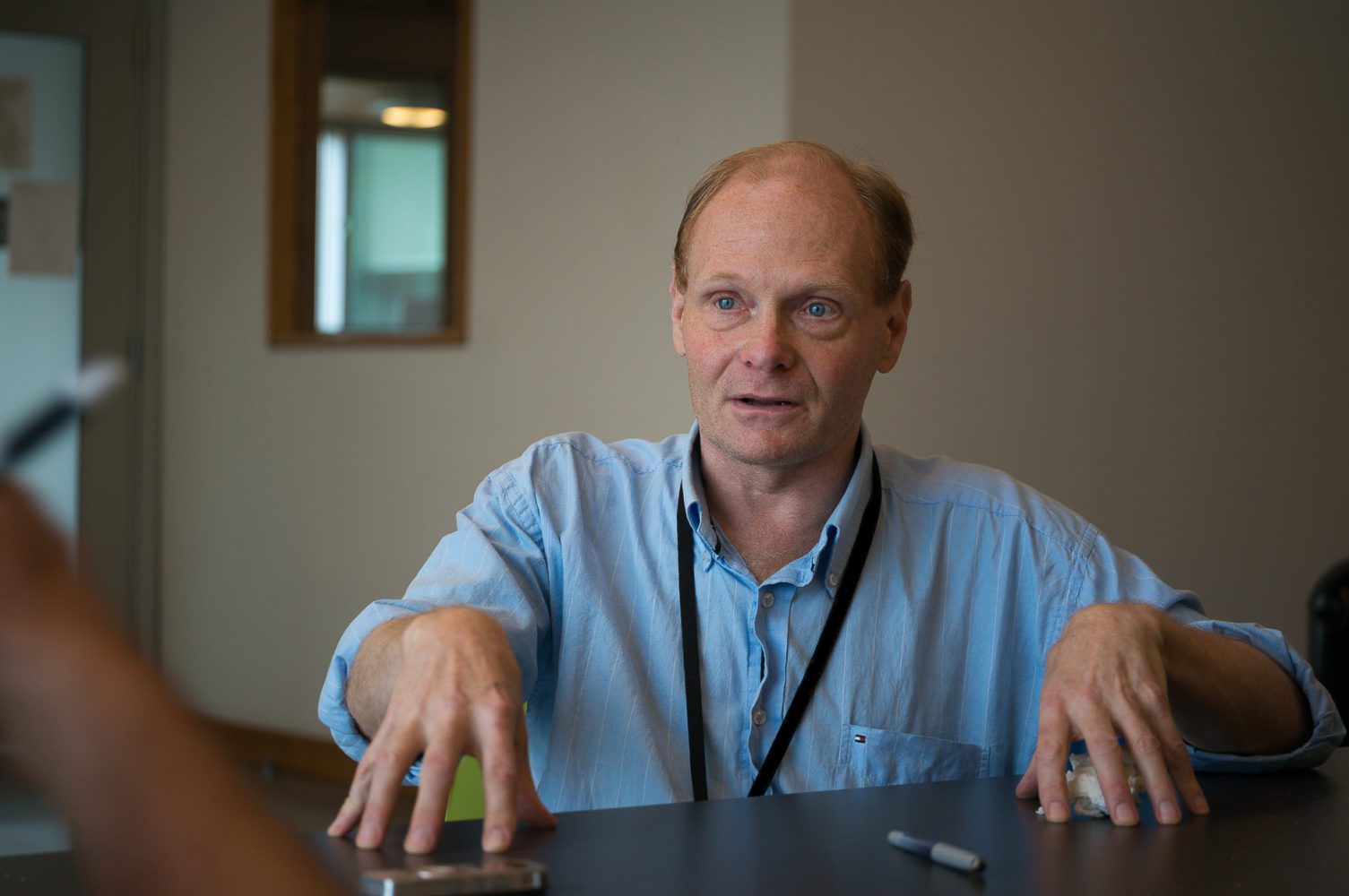
“What’s the most sad and frustrating part of your job?”
“Watching guys just walk out the door of this place without a reason, or walk out two days before they are supposed to complete the program. The more time I spend in this field, the more I realize how little about it I really know. The other frustrating part is to see guys who left here healthy and whole, and then their addiction just grabs them right around the neck again and holds. Sometimes it comes right out of left field. We watch guys leave here; they’re healthy, they’re vibrant, they’ve rediscovered their own value in life. And 4 months later we see them walking up and down these streets with their head down, they’re emaciated (everything that goes with active drug use), or they die, or they are incarcerated. That’s sad and frustrating.”


The comments section is closed.